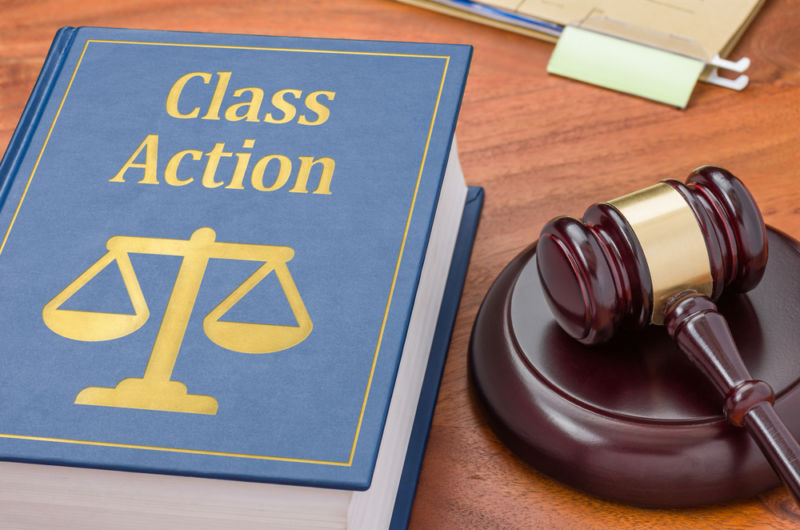Toughness in Numbers: Discovering the Effect of Class Action Lawsuits
Trick Elements to Take Into Consideration in Class Action Claims: Insights for Attorneys
Course activity lawsuits can be intricate and challenging for attorneys to navigate. From class accreditation requirements to problems computations and settlement negotiations, there are numerous crucial elements that require to be thoroughly considered. Comprehending these factors and their ramifications is important for legal representatives intending to effectively represent their clients in class action legal actions. By diving into the ins and outs of class action lawsuits, this discussion intends to offer beneficial insights for legal representatives seeking to browse this complex lawful landscape.
Class Qualification Demands
To continue with a course activity suit, legal representatives have to browse through a series of rigid class certification needs. Class certification is an essential stage in the litigation process that establishes whether a group of plaintiffs can be certified as a class and proceed with their claims jointly. These requirements offer to ensure that class actions are effective and proper systems for resolving disagreements involving various complainants.
While there is no set mathematical threshold, courts normally consider a course with more than 40 participants as completely countless. In addition, commonality is an additional crucial factor in class qualification.
Competence of depiction ensures that the representatives will relatively and adequately shield the passions of the course members. A class activity must likewise satisfy the requirement of superiority, indicating that a course activity is a superior method for adjudicating the dispute contrasted to various other readily available techniques.
Browsing through these course certification demands can be complex and challenging for attorneys. However, understanding and conference these demands are vital to efficiently go after a class action suit on part of a team of complainants.

Commonality of Cases
The following critical variable to think about in the course qualification procedure is the commonness of insurance claims amongst the complainants. Commonality refers to whether the class participants share comparable lawful issues and concerns of truth that can be fixed collectively. Simply put, it is necessary to establish if there prevail inquiries of legislation or truth that are main to the lawsuits which predominate over any kind of private problems.
To develop commonness, the complainants have to show that there are accurate or lawful problems that are common to the whole class. This can be accomplished by recognizing a common program of conduct or an usual lawful concept that underlies the cases (Class action lawsuit). The presence of typical questions is essential due to the fact that it promotes judicial performance and economy by permitting a single choice to fix the problems for the whole course
Nonetheless, it is essential to keep in mind that the commonness need does not demand that all the private cases be the same. If there are still typical concerns that bind the class together., differences in damages or private situations do not always defeat commonality.

Damages Calculations
When computing damages in class action legal actions is the exact evaluation of economic losses sustained by the course participants,One important facet to consider. In order to determine the suitable amount of settlement, it is required to evaluate the degree of damage experienced by each individual within the course. This can be a complex job, as it calls for a thorough analysis of different elements, such as the nature and duration of the damage, the economic influence on the affected individuals, and any kind of other appropriate factors to consider.
When examining financial losses, it is important to take into consideration both the straight and indirect problems endured by the class members. Straight damages refer to the real out-of-pocket expenses incurred as a result of the offender's activities.
To compute damages accurately, attorneys need to gather detailed evidence, consisting of economic records, expert opinions, and testaments from the class members. They may likewise need to involve financial and economic specialists who can provide understandings right into the long-term monetary effects of the injury endured.
Settlement Negotiations
Throughout settlement arrangements, attorneys should take part in critical and mindful discussions to reach an equally acceptable resolution for all celebrations associated with the course action legal action (Class action lawsuit). Settlement settlements are an important phase in the lawsuits process, where the parties try to get to a concession without going to trial. These settlements call for attorneys to employ their negotiation skills, legal experience, and understanding of the case's strengths and weak points
One crucial aspect to think about during negotiation arrangements is the potential threats and expenses associated with proceeding to trial. Lawyers should carefully evaluate the probability of success at trial and consider it versus the potential advantages of a settlement. They need to additionally consider the prospective time and sources that would certainly be needed to go with a test, in addition to the prospective negative publicity that can arise from a public test.
One more key factor is the passions and problems of the class members. Attorneys require to comprehend what the class members intend to accomplish with the legal action and how a negotiation can resolve their grievances. By thinking about the class participants' perspectives and talking to them throughout the negotiation procedure, lawyers can better advocate for their passions and guarantee that any settlement gotten to is adequate and fair.
Additionally, attorneys need to be prepared to negotiate with the opposing party and their legal reps. This requires a deep understanding of the staminas and weaknesses of both sides' debates and a readiness to jeopardize. Skilled arbitrators can leverage this understanding to find typical ground and craft imaginative remedies that fulfill the needs of all celebrations involved.
Efficient Client Depiction
To properly represent their clients Class action lawsuit in class activity claims, attorneys need to possess a comprehensive understanding of the instance and faithfully supporter for their customers' interests. Reliable client representation needs legal representatives to develop open lines of interaction and maintain a solid attorney-client partnership throughout the whole lawsuits procedure.
Most importantly, lawyers should completely evaluate the facts, lawful problems, and possible dangers linked with the situation. This includes performing an in-depth examination, examining relevant files, and seeking advice from professionals if essential. By getting a deep understanding of the situation, attorneys can establish a strategic technique tailored to their customers' objectives and demands.
Moreover, legal representatives should actively advocate for their customers' rate of interests during all stages of the legal action. This involves drafting persuasive legal disagreements, conducting extensive research study, and offering compelling proof to support their clients' claims. Lawyers must likewise stay notified about current advancements in course action law and use this knowledge to enhance their clients' settings.
Along with legal campaigning for, reliable customer depiction includes offering routine updates, responding to concerns, and attending to any type of issues that clients might have. Legal representatives must be aggressive in keeping their customers educated about the development of the instance and any substantial developments that might influence the result.
Ultimately, reliable customer depiction needs legal representatives to be diligent, receptive, and dedicated to securing their customers' legal rights and passions. By embracing a client-centered strategy, legal representatives can maximize the chances of attaining a positive outcome in course action legal actions.
Conclusion
In verdict, attorneys associated with class action legal actions should think about key elements such as course certification needs, the commonality of claims, problems estimations, settlement arrangements, and effective customer depiction. By carefully dealing with these variables, legal representatives can improve their possibilities of success in course activity lawsuits and ensure that the rate of interests of their clients are safeguarded.
Recognizing these aspects and their implications is essential for lawyers aiming to successfully represent their customers in course action suits.To continue with a class action lawsuit, lawyers should navigate with a series of rigorous class qualification requirements. Class certification is a critical stage in the lawsuits process that determines whether a group of plaintiffs can be accredited as a course and continue with their claims jointly. A class activity must likewise please the need of superiority, indicating that a class activity is a remarkable method for adjudicating the dispute compared to various other offered techniques.
One essential element to consider when calculating problems in course action legal actions is the precise analysis of financial losses incurred by the course members.